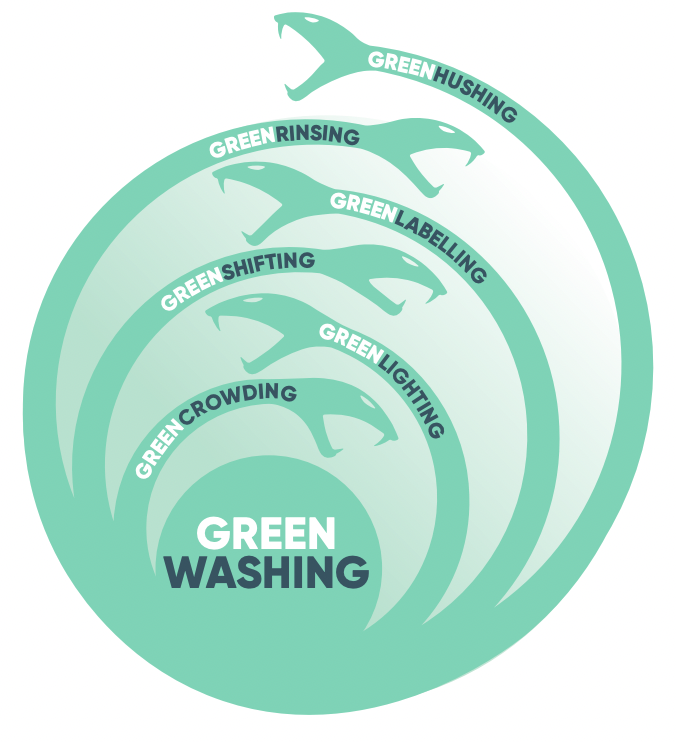Greenwashing is not anything new, but what is surprising, is that it’s still prevalent.
Corporate greenwashing is defined by ClientEarth as the use of:
“Advertising and public messaging to appear more climate friendly and environmentally sustainable than [a company] really is. It’s also a technique used by certain companies to distract consumers from the fact that their business model and activities actually do a lot of environmental harm and damage.”
While greenwashing is often misleading, it’s not always illegal. Many companies spend large amounts of money to find regulatory loopholes.
Planet Tracker recently released a report that talks at length about the six shades of green and how sophisticated greenwashing has become. They’ve put together this Greenwashing Hydra which sums these up:
- Greencrowding: Built on the belief you can hide in a crowd / safety in numbers.
- Greenlighting: Concentrating on spotlighting one green area of your business to draw attention away from environmentally damaging activities elsewhere.
- Greenshifting: Implying that consumers (or someone else) is at fault.
- Greenlabelling: Calling something green or sustainable, but on closer inspection it’s revealed that the words are misleading.
- Greenrinsing: Refers to when a company (regularly) changes its environmental targets before achieving anything.
- Greenhushing: Underreporting outcomes beyond the bare minimum.
From a communications / brand perspective, greenwashing is dangerous not just because it misleads consumers and undermines legitimate environmental efforts, but for the reputational damage it can cause. It takes many years to build trust – but trust can be smashed in moments.
There have been several examples of this, including:
- BP (British Petroleum): In 2010, the company’s Deepwater Horizon drilling rig exploded, causing the worst oil spill in U.S. history. This led to severe damage to the Gulf of Mexico’s ecosystem and the local economy, and BP was criticized for its handling of the disaster and its previous greenwashing campaigns.
- Nestlé: The company has been criticised for its sourcing of palm oil, which is linked to deforestation and habitat destruction. Nestlé has also been accused of greenwashing its products and making false or misleading environmental claims.
- Monsanto: The company, which is now owned by Bayer, has been the subject of controversy over the use and safety of its genetically modified crops and pesticides. Monsanto has also been accused of greenwashing and making false or misleading environmental claims.
- Volkswagen: In 2015, the company was found to have installed software in its diesel cars that cheated emissions tests. This led to a loss of trust in the company and its ‘clean diesel’ marketing claims.
So, as you start to review your 2022 CSR results, and look to focus on the year ahead, ensure you’re straight talking and reporting results fairly and transparently. If you need a hand, give our team a shout.

